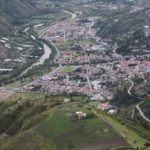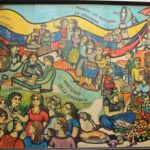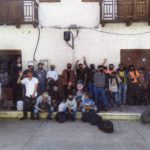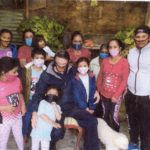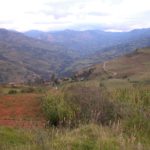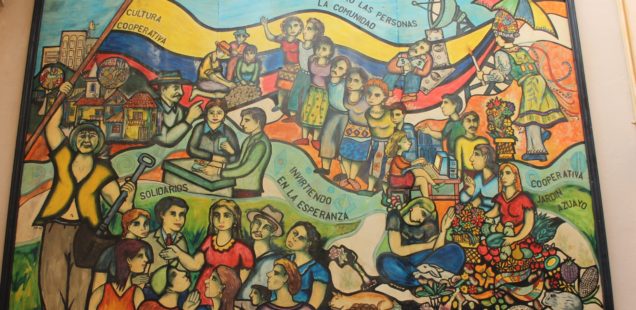
Community solidarity in reaction to COVID 19 in Paute (Ecuador)
Since early 2020, all countries in the world have been progressively affected by the COVID 19 pandemic, a disease whose impact is felt most severely by poor and disadvantaged communities. Importantly, the disease requires a strong sense of mutual care and community solidarity to be mitigated and possibly overcome. For example, everyone must take action to avoid contaminating oneself and others, and everyone must understand that those who lose their jobs are in need of help.
With this in mind, the Feyerabend Foundation asked Father Hernán Rodas, one of its oldest laureates and most trusted nominators, to identify what could be done to prevent the most serious consequences of COVID 19 in disadvantaged community in the Paute area of Ecuador. Hernán identified the community of Plazapamba, where several families were experiencing health and economic difficulties. He helped the community to examine what initiatives might be appropriate, and one initial idea was to develop a community garden, where people could produce for their own consumption. This idea was also initially chosen by a group of “working children”, accustomed to regularly meet with Hernán and discuss their problems with him.
Soon, however, the idea of buying utensils and developing gardens for local consumption was taken up by several local politicians, who distributed seeds and other implements free of charge. The Plazabamba community were then asked again about their immediate priority and decided that one of their families urgently needed a place to live. The family includes 14 people, 7 of whom are children. They live in two dilapidated rooms at the foot of a hill, under the threat of large stones falling on their quarters. When COVID arrived, one of the family’s breadwinners was affected and had to stop working.
The people and children gathered by Hernan agreed that it was a priority to help that family, and their crucial need seemed to be a new home in a safer place. They decided that they would voluntarily offer their work and ask for legal, administrative, and material support from the municipality, the church, the CECCA organisation and wherever they could find it. A small piece of land was then bought and a safer and more decent home for the family has been built there with the help of the young people in the community. Part of the urgent allocation from the Feyerabend Foundation has been used to acquire the material supplies for this initiative.
Another part of the allocation is being used to support a small group of young women with professional degrees (e.g., in medicine, psychology, social support, pedagogy, education, the law) but precarious employment. These women spontaneously formed a volunteer group to assist young people in Paute as they are experiencing psychological troubles due to the COVID situation on top of pre-existing difficulties (broken families because of migration, unemployment, violence, drugs, rape cases…). Some of the people in need of support are from the long-standing group of ‘working children’ mentioned above. Some of these young women are themselves survivors of rape and serious personal troubles. Their association is called SUYAY “Esperanza para todos”. It is remarkable that they are pulling together to help others and the Foundation is delighted to provide a small encouragement and support to their work.
The remaining funds of the original allocation were finally used, in 2021, to help the women cooperative in Paute to secure a business that could offer economic options even to the poorest of the poor: raising small animals to be sold together under a quality label. In the Andean regions of Ecuador, cuyes (a type of guinea pigs) are a very appreciated food (the equivalent of chicken or rabbit in other countries) which can be easily raised and fed food scraps even in the smallest home. The women cooperative worked hard to secure a prestigious production quality label and reach out to even the most isolated households. Today the quality label is obtained, and the cooperative offers an avenue for income suitable for even the least privileged women, in particular those who have greatly suffered from the COVID pandemic.

